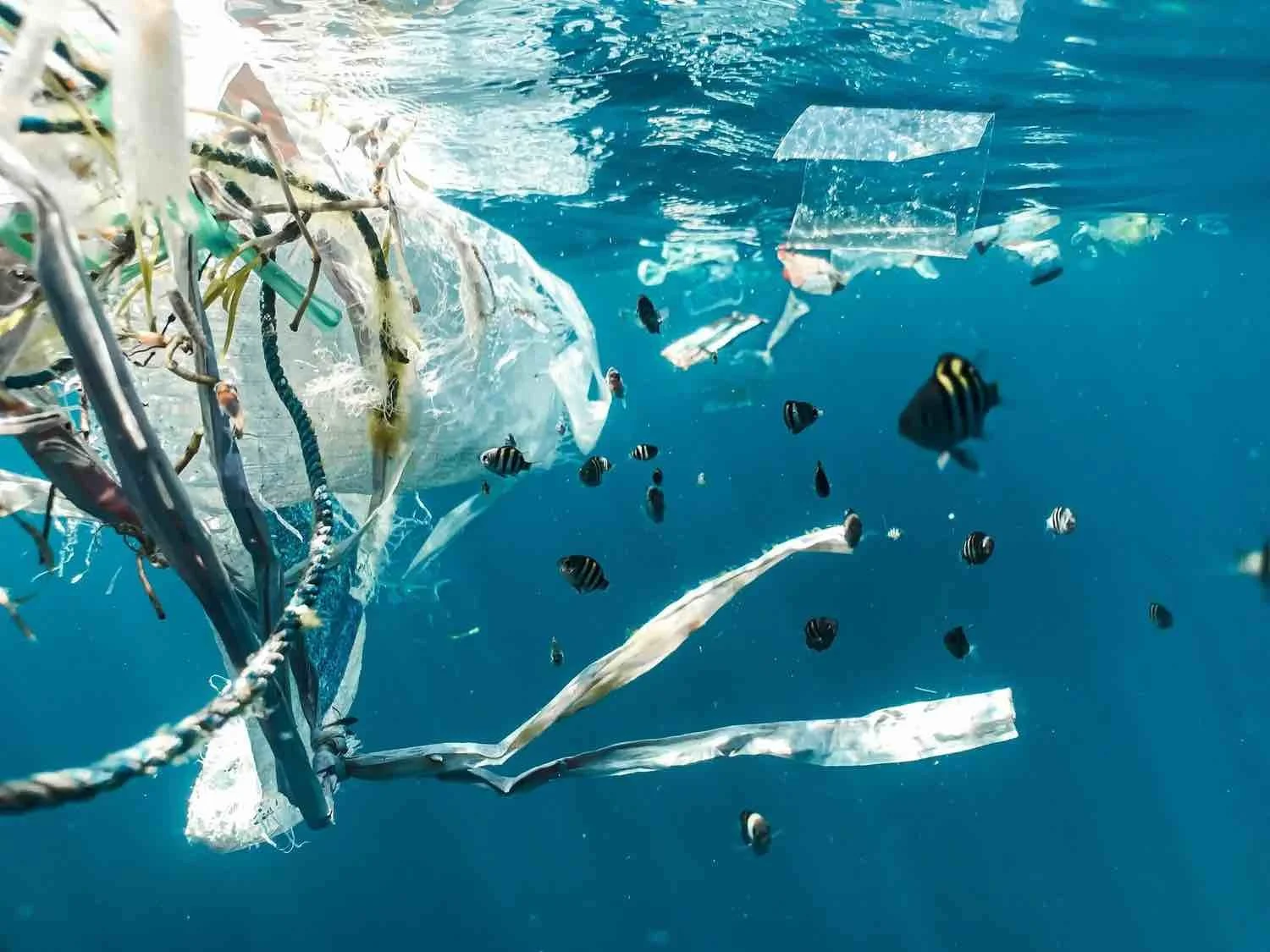The Environmental Impact of Travel & Tips to Be Greener
Travel is wonderful in many ways. It captures our sense of adventure and exposes us to different cultures, experiences, food and people.
As amazing as travel is, it comes with its own set of problems, especially when it comes to the environment.
Let’s explore some of the impacts travel has on the planet and learn a few tips on how to travel more sustainably.
What is the Environmental Impact of Travel?
Carbon emissions
It’s no surprise that moving millions of people around the planet generates a lot of carbon emissions.
According to the World Travel & Tourism Council, tourism accounts for an estimated 8-11% of global greenhouse gas emission.
Road transport contributes to 74.5% of emissions while aviation causes around 17% of total travel carbon emissions.
To give you a better picture of just how energy-intensive travel can be -- a study by environmental group Germanwatch found that a single person taking one roundtrip flight from Germany to the Caribbean produces the same amount of emissions as 80 average residents of Tanzania do in an entire year (around four metric tons of CO2).
Water overuse
One major perk of going on vacation is you get to enjoy unlimited showers a day, swimming pools and stunning views from lush landscaped gardens.
To provide these services, groundwater is often redirected and overdrawn by large hotels which increasingly adds pressure on water supply systems of tourist destinations around the world.
Local communities experience water shortages and increased salinity of natural drinking water sources while small farmers struggle to water their crops especially in drier seasons.
Siem Reap, Cambodia is currently facing a water crisis because of a the tourism sector. The city has become popular thanks to its famous Temple of Angkor Wat visited by over 2 million tourists each year.
Unfortunately, the influx of tourists has resulted in water shortages, forcing the authorities to tap into the groundwater, lowering the water table and sinking the ground on which the World Heritage Site stands.
Zanzibar is another popular travel destination that is being affected by disproportionate use of fresh water by tourists.
An average household consumes a little over 93 liters of water per day, while an average consumption per room in a guesthouse is 296 liters.
The difference is even bigger when it comes to 5-star hotel rooms where guests use up to a whopping 3,195 liters of water per day.
Plastic pollution
During travel, many rely on single-use plastic items resulting in a great deal of waste. In fact, tourists can produce twice as much waste as local residents.
With 80% of all tourism taking place in coastal areas, plastic from the sector can be a large contributor to this pollution.
For instance, in the Mediterranean, it has been estimated that marine litter increases by up to 40% during the peak season.
Plastic pollution alters the physical appearance of landscapes and harms marine life. If current trends continue, our oceans could contain more plastic than fish by 2050.
Degradation of eco-systems and biodiversity loss
The world’s most coveted tourist destination sites like the Amazon Rainforest, Serengeti National Park and The Great Barrier Reef are located in areas of sensitive ecosystems.
But they’re often threatened by developers and tourists who are eager to benefit from their exploration.
Infrastructure development and unsustainable land use can lead to sand mining, wetland draining, deforestation and soil erosion which affects the the landscapes.
It also causes destruction of habitats and increased pressure on wildlife and endangered species.
Animal suffering
Animals both large and small are a part of our environment and are vital in a functioning ecosystem. For decades, animals have been exploited in the tourism industry for the sake of entertainment.
Whether it is riding elephants, taking selfies with tigers, or watching dolphin shows, these activities can cause lifelong suffering for wild animals.
Research conducted by the University of Oxford’s Wildlife Conservation Research Unit found that three out of four wildlife tourist attractions involve some form of animal abuse or conservation concerns, and up to 550,000 wild animals are suffering in these venues.
How to Travel More Sustainably: 10 Tips for Eco-friendly Travel
With all the negative environmental impacts, should you give up on travel all together? Not necessarily.
Travel is not only a medium to unwind and build human connections, it supports communities and offers opportunities to people from all walks of life, therefore it’s important on a global scale.
Here are 10 things you can do to minimize your impact on the planet as you make your way around the world.
Research the Environment & Culture
Informed travelers make better decisions for the environment. Before you hop on a plane, research the environmental issues faced by the destination you are visiting and make plans to reduce your footprint in advance.
Along with learning about your environment be sure to do some research about the culture. When travelers understand the culture they can make more informed decisions that show respect to locals.
Choose Sustainable Means of Transportation
When vacationing to closer destinations, avoid flying if you can and travel by train or coach to cut down on your carbon footprint while soaking in the scenery. Once you’re in your destination, you can book a transfer in a hybrid vehicle, ride-share or take a bus.
Take the road less traveled
While it may be tempting to visit the same bucket list destinations on everyone’s Instagram, it can be even more rewarding to explore less visited places where you'll find gorgeous natural beauty, without pushing through crowds.
Consider looking for tours and activities led by locals! This is a great opportunity to connect with people who know the land, learn about the culture, and meet other travelers.
However, if you can't resist the lure of big tourist destinations, consider traveling in off-peak seasons. There will be less crowds and the money you spend will help local businesses to stay afloat.
Choose eco-friendly accommodations
As travelers become concerned about the environment, more hotels and Airbnbs are adopting sustainable practices such as using renewable energy sources like solar or wind energy, offering bikes to travelers, buying amenities in bulk to reduce waste, offering locally sourced food, installing water recycling and filtering systems and more.
Whatever type of accommodation you choose, make sure it has an eco-friendly approach to its services.
Eat local foods
When traveling abroad, try all of the local dishes that you can’t get at home. From seafood to curries to wine, every destination offers unique delicacies that are worth trying.
By eating local foods instead of imported ones, you’ll reduce your carbon footprint, support the local economy and enjoy some fresh and tasty cuisine.
Offset your carbon footprint
No matter how sustainable your travel habits are, certain emissions will always be unavoidable. To compensate for your travel footprint, you can purchase carbon offset credits equivalent to the amount of emissions you were responsible for.
When you buy carbon offsets, you are contributing to projects that reduce emissions such as reforestation and wind and solar projects. We’ve got a guide on offsetting your carbon footprint if you’re looking for somewhere to start!
Choose travel companies that are invested in the community.
If you choose to use a travel agency ask questions regarding their relationship with the local community you hope to visit. Travel operators that work closely with communities often engage in more sustainable practices and ensure that popular travel destinations are cared for.
Commit to wildlife-friendly travel
If you are eager to see wildlife in their natural habitat, choose sanctuaries and parks that offer ethical and sustainable animal interactions. As a general rule, avoid places where animals behave unnaturally.
Support Small Local Businesses
A lot of times travelers like to buy souvenirs to remember their vacation! Unfortunaltey, a lot of souvenirs are mass produced and crafted with plastic. A lot of times these cheap items aren’t even made locally!
If you’re able to, try avoid going to the chain souvenir shops and try to find small businesses to support.
Going to a local craft fair or farmers market can be a great way to meet locals and support small businesses that craft their items in the destination you want to remember!
Also keep your eyes open for small boutiques as you’re sure to find some unique items!
Opt for reusable items
The best way to reduce your waste on your travels is to ditch single-use plastic. Pack a reusable water bottle, coffee cup, straw, food containers and cutlery to leave as little waste as possible.
Be mindful
Wherever you may go in the world, always remember you’re in someone else’s home and strive to make a positive impact while you’re there. Be respectful of the culture, the environment, and be willing to learn.
Hopefully this guide gave you some things to think about when planning your next trip!
MORE SUSTAINABLE TRAVEL POSTS TO READ:
For more ethical & sustainable living tips be sure to follow The Honest Consumer on social media, subscribe to our newsletter, & check out the Ethical & Sustainable Brand Directory.








